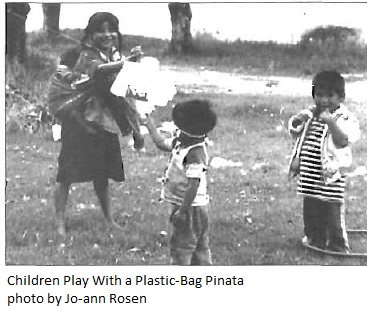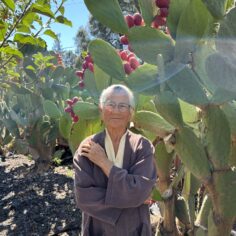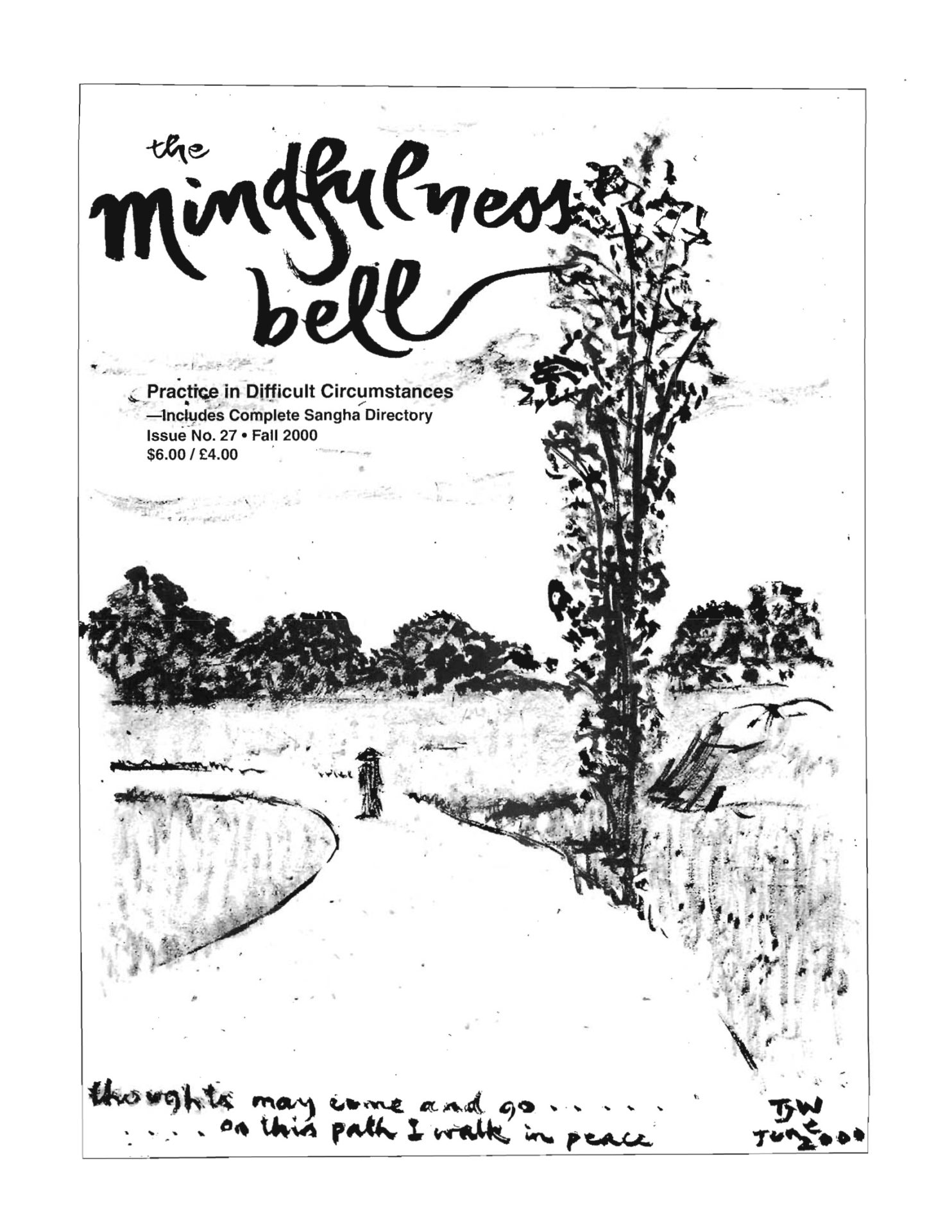By Jo-ann Rosen in September 2000
After 18 months away, I returned to Chiapas last April, leading a small group of mindfulness practitioners to learn firsthand the complexities of the Mayan struggle in Mexico—a struggle that exemplifies the clash between indigenous lifestyle and the global power economy worldwide. Life in Chiapas is lived so close to the bone that each encounter of the trip was a meditation on impermanence. The people’s lives are a testimony to non-attachment and a practice in overcoming birth and death.
By Jo-ann Rosen in September 2000
After 18 months away, I returned to Chiapas last April, leading a small group of mindfulness practitioners to learn firsthand the complexities of the Mayan struggle in Mexico—a struggle that exemplifies the clash between indigenous lifestyle and the global power economy worldwide. Life in Chiapas is lived so close to the bone that each encounter of the trip was a meditation on impermanence. The people's lives are a testimony to non-attachment and a practice in overcoming birth and death. A marginal economy brings the unexpected. Working to see each experience as fresh and whole helped us appreciate the gifts, as well as the burdens, of these harsh realities.
Traveling outside our familiar environment, we became more aware of the hidden cultural filters we impose. Aware of the first four Mindfulness Trainings of the Order of Interbeing, we saw more clearly the fixed ideas we held, and were challenged to see things fresh in each encounter. As we watched children three or four years old taking primary responsibility for younger children, we reevaluated our ideas of a good childhood. We saw children of all ages playing joyfully together, hugging, kissing, working, and problem solving. Mayan children work as soon as they can. They may never have a "childhood" as we define it. We learned to ask questions rather than say "Oh, those poor children." We wondered if this early caring of each other might be why the Maya seem such a patient, watchful people, yet refuse tenaciously to let go of their roots and spiritual connections, even when faced with severe pressure.
In San Cristobal, the new home of tens of thousands of relocated Maya, we visited a squatter neighborhood on the outskirts of town. Here, a friend facilitates a women's reflection group. Speaking in their native language, Lupe, an indigenous single mother of five, encouraged women to share their stories: women who fled burning villages, abusive relationships, and abject poverty. "We are made of corn," they say. "Without land, how are we to survive?" These Tzotzil, Tzeltal and Choi women are set apart from the dominant Mexican culture by language, custom, and economics. Here, they struggle to birth a new form of community. We were aware of their suffering, of the powerlessness we felt to help them, and the question arose, "What could be empowering for these women and what might be our right role?"
At Centro Arrumacos, babies napped in hammocks, while preschoolers studied their native language, Tzotzil. The center had grown since I left. It was more organized and showed promise of attaining its goal of empowering indigenous single mothers. While we were there, however, they received word that funding would terminate in two months. This is typical of the two steps forward, two steps back that Chiapas Non-Governmental Organizations constantly face. Feelings of joy and pain arise in the same moment. What sustains these caregivers who continue joyfully in the face of such constant and difficult change?

Melel Xojolabal (True Light) is a project that works with street children. This group began to work with the ideas of Beginning Anew two and a half years ago. Two staff members told me that communication has greatly improved among the staff, partly due to the seeds we planted back then. Another staff member shared how much her family has gained by doing the Five Contemplations and the Waking Up Gatha each day. "Now our family has tradition. It's so simple; that's what I love."
Those who work for social change plant seeds hoping they will find fertile ground. What sustains their energy and faith while the seeds germinate? What can we learn about this from these people who have sustained their "planting" power for over 500 years of struggle? We will find answers to these questions—and many others—only when we wholeheartedly practice. When we drop our preconceived notions and listen with all our attention and openheartedness, we may see reality more clearly.


